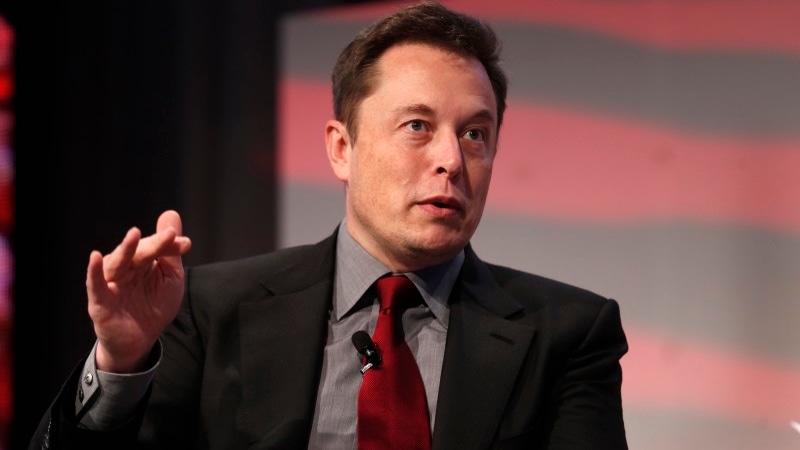- Home
- Transportation
- Transportation News
- Elon Musk Makes Fun of Uber's Plan for Flying Taxis
Elon Musk Makes Fun of Uber's Plan for Flying Taxis

Speaking with students at IIT Delhi on his first visit to India after taking over as Uber CEO, Dara Khosrowshahi took a dig at Elon Musk's Boring Company, saying, "why dig tunnels when you can use the air?"
"We like Uber Air more. We are working to making VTOL [vertical take-off and landing] a reality in the next 5 - 6 years," he added. "Why dig tunnels when you can use the air?"
Musk, Tesla's founder, who is currently working on building tunnels to connect New York and Washington DC, is never one to take this things lying down. On Twitter, Musk came back with a cutting reply, tweeting: "If you love drones above your house, you'll really love vast numbers of 'cars' flying over your head that are 1000 times bigger and noisier and blow away anything that isn't nailed down when they land."
It's an interesting counterpoint to an idea that Uber has talked about off and on for years now. Uber has a program called Uber Elevate, focused on flying taxis. It has hired people from NASA to make this happen, and signed a deal with the space agency to build flying taxi air control software. At its Uber Elevate summit, the company said it expects to deploy flying taxis by 2020. That's a little ahead of Khosrowshahi's five to six year timeline, but it shows that Uber as a company has been pushing in this direction for quite some time.
However, Musk also has a very valid point. Uber's VTOL solution would be significantly bigger than a personal drone, and consequently louder as well. That doesn't even start to address regulatory issues that might come up. Of course, the comparison between Musk's Hyperloop vision and Uber's flying taxis isn't apples to apples. The former is meant to serve as a means of speedy inter-city transport, while the latter is meant for intra-city transport.
Beyond all this, there's also the fact that apart from Uber, others including Amazon are also looking to the skies, which might become just as crowded as our roads, as more such projects take off. Later in the day, Khosrowshahi added that this might happen sooner than people think.
"We're closer than you think. The key here is actually battery technology," he said. "The new generation of batteries is actually going to be light enough and dense enough, to be able to power rotors that are much smaller than the helicopter rotors that you see, so you can have vehicles that have, four to eight rotors, each of which because they're smaller will be much smaller, there will be much less noise pollution, they will be much quieter and safer as well. We are now actively working on on the Uber Elevate project, I think we will have vehicles that are flying in five years, and you will have commercialisation in ten years or sooner."
For the latest tech news and reviews, follow Gadgets 360 on X, Facebook, WhatsApp, Threads and Google News. For the latest videos on gadgets and tech, subscribe to our YouTube channel. If you want to know everything about top influencers, follow our in-house Who'sThat360 on Instagram and YouTube.
Related Stories
- Samsung Galaxy Unpacked 2025
- ChatGPT
- Redmi Note 14 Pro+
- iPhone 16
- Apple Vision Pro
- Oneplus 12
- OnePlus Nord CE 3 Lite 5G
- iPhone 13
- Xiaomi 14 Pro
- Oppo Find N3
- Tecno Spark Go (2023)
- Realme V30
- Best Phones Under 25000
- Samsung Galaxy S24 Series
- Cryptocurrency
- iQoo 12
- Samsung Galaxy S24 Ultra
- Giottus
- Samsung Galaxy Z Flip 5
- Apple 'Scary Fast'
- Housefull 5
- GoPro Hero 12 Black Review
- Invincible Season 2
- JioGlass
- HD Ready TV
- Laptop Under 50000
- Smartwatch Under 10000
- Latest Mobile Phones
- Compare Phones
- Oppo Find N5
- Apple iPhone 16e
- Samsung Galaxy A06 5G
- Realme P3 Pro 5G
- Realme P3x 5G
- Vivo V50
- Realme GT 7 Pro Racing Edition
- Samsung Galaxy F06 5G
- Asus Chromebook CR11
- Lenovo Yoga Slim 9i (2025)
- Asus ROG Flow Z13 (2025)
- Xiaomi Pad 7
- Huawei Huawei Band 10
- Lava Prowatch X
- Haier M95E
- Sony 65 Inches Ultra HD (4K) LED Smart TV (KD-65X74L)
- Sony PlayStation 5 Pro
- Sony PlayStation 5 Slim Digital Edition
- Blue Star 1.5 Ton 3 Star Inverter Split AC (IC318DNUHC)
- Blue Star 1.5 Ton 3 Star Inverter Split AC (IA318VKU)














